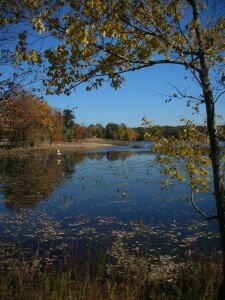 I began my position as an Urban Refuge Intern with Patuxent Research Refuge in September of 2012, just as the school year was beginning. This being an off-refuge position, I spent the majority of my time in schools. I was thus able to reach countless more students in my school district of Fairfax County, Virginia than would have been possible thirty-plus miles away up at the refuge in Laurel, Maryland. It felt great knowing I was doing my part to educate the youth about the importance of the natural world, as well as demonstrate to them how their day-to-day choices have a real impact on the fate of the environment and, as a corollary, the very nature of our continued existence on our beloved Earth.
I began my position as an Urban Refuge Intern with Patuxent Research Refuge in September of 2012, just as the school year was beginning. This being an off-refuge position, I spent the majority of my time in schools. I was thus able to reach countless more students in my school district of Fairfax County, Virginia than would have been possible thirty-plus miles away up at the refuge in Laurel, Maryland. It felt great knowing I was doing my part to educate the youth about the importance of the natural world, as well as demonstrate to them how their day-to-day choices have a real impact on the fate of the environment and, as a corollary, the very nature of our continued existence on our beloved Earth.
One group of students in particular really touched my life in a special way. These third- and fourth-grade children were designated to be pulled out of their regular class for one hour each week to work with my supervisor and I on various environmental projects. As these students had underperformed on their Virginia Standards of Learning (SOL) tests the previous school year, the goal of these weekly meetings was to get them to focus on the concept of change as demonstrated through various transformations occurring year-round in the natural world. It was hoped their test scores would improve in this subsequent school year due to increased proficiency in such important test-taking skills as pattern recognition and attention to detail.
A number of students in this group (self-named the “Brainstormers”) were fairly rambunctious, which was perhaps at least partially related to why they were performing poorly on their assessments in the first place. There were weeks when these kids were so poorly behaved that we felt near our wits’ end by the close of our lesson with them. The acting up got particularly bad when we took them outside, which was unfortunate because connecting children with the outdoors (in the most literal sense possible) is one of the greatest joys of environmental education. We were able to endure the running loose, the yelling, the fidgeting, and all the other issues encountered by keeping our minds focused on what was truly important: we were exposing these kids to something they had had few previous opportunities to explore, at least in a formal educational setting.
I will never forget the day these students completely blew me out of the water. After an entire school year of mitigating less-than-stellar behavior, it was mid-April and I was getting ready to transition to a different job for the summer season. During our last meeting with these kids my supervisor presented me with a stack of beautifully handcrafted farewell cards, one from each student. The time I thought they had been using over our last several meetings to write to their pen pals in Russia had in actuality been used to make these treasures for me, complete with pictures and all kinds of color! She then gathered them all around in a circle and had them take turns describing what they would miss most about me. I was touched beyond belief.
It’s moments like those that make one realize why educators do what they do. Teaching children about the environment might not always be a cake walk, and the rewards are often subtle and long in the making. If ever I get discouraged due to poor behavior or lack of enthusiasm among future pupils, I will think back to this one moment that completely reaffirmed my belief in spreading the good news about nature to our young folks. One letter in particular stands out in my mind. I cannot recall the exact words, but it went something like this (adorable misspellings not included): “When we first started I did not feel good about myself. I did not think I was smart. Now I am a smart boy, proud boy, nature boy. I can do anything.” I consider my job well done if I can touch just one student in that manner in the course of a school year.
Alex was an intern at Patuxent Research Refuge.